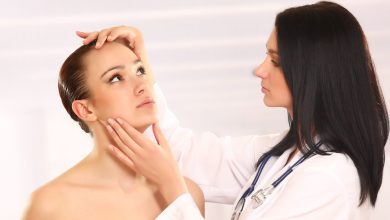AHCC: Its Chemistry, Source, Uses, and Benefits

A dietary supplement called active hexose correlated compound (AHCC) is made from the mycelia of shiitake (Lentinus edodes) mushrooms. It has a combination of carbohydrates, amino acids, and minerals, just like other mushrooms.
History
In 1987, researchers at the University Of Tokyo Faculty Of Pharmaceutical Sciences created AHCC as a natural remedy for controlling high blood pressure. AHCC is currently recognized for its immunostimulant potential as a kind of infection, cancer, and virus defence. In the US, China, Korea, Japan, and Thailand, researchers are studying AHCC. Japan and the US are where it is most frequently used as a dietary supplement. Patients with autoimmune disorders, cancer, HIV/AIDS, hepatitis C, and hypertension have all benefited from using AHCC as a supplement. Additionally, there are anecdotal reports of its usage in the treatment of multiple sclerosis, fatigue syndrome, stomach ulcers, gum disease, and wounds.
Chemistry
A patented procedure including cultivation, enzymatic breakdown, sterilization, concentration, and freeze-drying is used to produce AHCC. It includes minerals, minor amounts of protein, amino acids, lipids, and carbs (mostly polysaccharides). An extract of the mycelia of basidiomycete mushrooms made up the enzyme-fermented substance
Read More: 10 Brilliant Tips For How To Find Leaked Snapchats Newbies
Source
After being cultivated in a liquid media, the mycelia of several kinds of basidiomycete mushrooms, such as shiitake or Lentinula edodes, are extracted to create AHCC. The most common form of AHCC dosage is a pill. According to manufacturer recommendations, two 500 mg capsules should be taken orally three times a day on an empty stomach, or two capsules should be taken daily for general wellbeing. There have been doses as high as 6 g/day
Uses
The usage of AHCC (active hexose correlated compound) as an immunomodulatory drug, as well as its effectiveness as an adjuvant in the treatment of cancer and different infections, is documented in the medical literature. Additionally, AHCC’s potential as a hepatoprotective agent and a treatment for inflammatory bowel disease (IBD) has been studied in clinical trials. To prescribe AHCC for any of these diseases, clinical evidence is, however, inadequate.
What are the finest AHCC supplements?
When used as recommended and in conjunction with a wholesome diet and an active lifestyle, an active hexose correlated compound supplement, or AHCC supplements, may help boost your immune system and overall health.
Benefits
On the possible advantages of AHCC, numerous animal studies have been conducted. There is some indication that the substance may help treat or perhaps prevent some types of cancer, albeit these studies are still in their early stages. It can also increase the activity of T-cells, which are present in the body naturally and are used to fight against infections, cancer, and tumour growth, at least in mice.
The immune system may be strengthened and normal bodily processes may be modulated at the same time by AHCC. Additionally, the herbal supplement may help the liver function; which may reduce the risk of diabetes and protect against toxic substances. In addition, it might get rid of some current infections, like HPV-related ones.
Negative Effects
Taking AHCC supplements may have some adverse effects, just like taking most other supplements. The dosage, frequency, and pre-existing medical issues all have an impact on the kind and intensity of the adverse effect. Fatigue, foot cramps, itching, and diarrhoea are typical side effects. Additionally, some people have mentioned an increase in body temperature, which in some situations could be harmful.
Additionally, AHCC supplements may interfere with prescription drugs, including those that affect the liver or those that impair immune system activity. If you’re taking drugs that cause the opposite reaction to AHCC; which typically speeds up the immune system and liver function, the two may interact.




